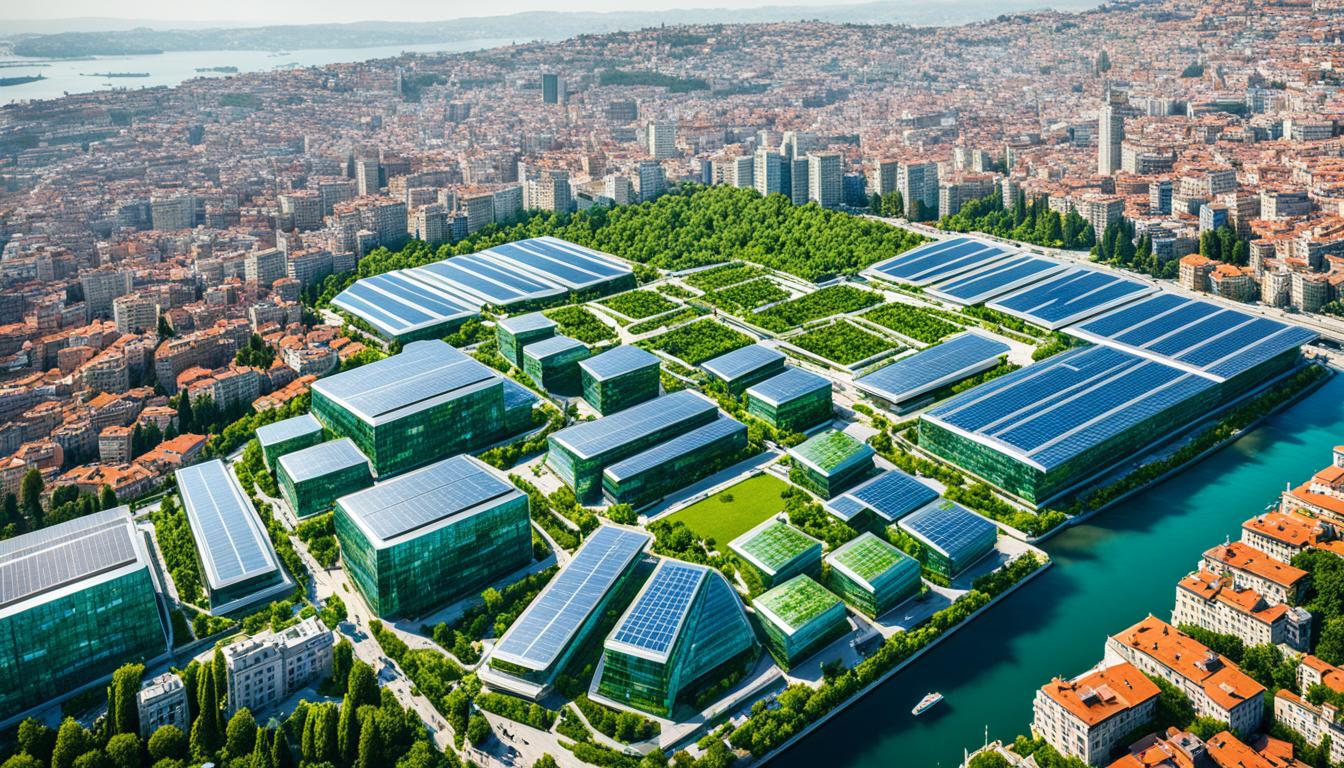Green Building Construction Market in Turkey
 The document titled “Motivators and Barriers for Green Building Construction Market in Turkey” explores the dynamics affecting the adoption of green building practices in Turkey. It identifies key motivators that encourage stakeholders to embrace sustainable construction methods, as well as the barriers that hinder their implementation. The study is crucial as it highlights the need for a shift towards environmentally responsible building practices amidst growing concerns over environmental degradation and climate change.
The document titled “Motivators and Barriers for Green Building Construction Market in Turkey” explores the dynamics affecting the adoption of green building practices in Turkey. It identifies key motivators that encourage stakeholders to embrace sustainable construction methods, as well as the barriers that hinder their implementation. The study is crucial as it highlights the need for a shift towards environmentally responsible building practices amidst growing concerns over environmental degradation and climate change.
Introduction
Green buildings are designed to reduce energy consumption, minimize waste, and promote sustainability. In Turkey, the construction industry faces significant challenges in adopting these practices, despite the potential benefits. The research aims to analyze both the motivators and barriers influencing the green building market in Turkey, providing insights for policymakers, industry stakeholders, and researchers.
Further reading:
Turkey Construction Equipment Market Report 2024-2029 –
Turkey Top Green Buildings – Constructive Voices constructive-voices
Key Motivators
The study identifies several factors that motivate stakeholders to pursue green building projects:
- Economic Benefits: Long-term cost savings through energy efficiency and reduced operational costs are primary motivators for adopting green building practices.
- Government Incentives: Policies such as tax breaks, subsidies, and grants provided by the government can significantly encourage investment in green construction.
- Market Demand: Growing consumer awareness and demand for sustainable buildings drive developers to incorporate green features into their projects.
- Corporate Social Responsibility (CSR): Companies increasingly recognize the importance of sustainability in enhancing their brand image and fulfilling CSR commitments.
- Health and Well-being: Improved indoor air quality and overall health benefits associated with green buildings attract both developers and occupants.
Barriers to Adoption
Despite these motivators, several barriers impede the widespread adoption of green building practices in Turkey:
- High Initial Costs: The upfront costs associated with green building materials and technologies are often higher than traditional construction methods, deterring investors.
- Lack of Awareness: Many stakeholders lack knowledge about the benefits of green buildings and available sustainable technologies, which limits their willingness to invest.
- Inadequate Regulations: The absence of comprehensive regulations and standards for green building practices creates uncertainty among developers regarding compliance and certification processes.
- Market Limitations: A limited supply of green materials and technologies in the local market can hinder project implementation.
- Cultural Resistance: Traditional construction practices are deeply rooted in Turkish culture, making it challenging to shift towards innovative sustainable methods.
Research Methodology
The research employed a mixed-method approach, combining quantitative surveys with qualitative interviews. A questionnaire was distributed among construction professionals, architects, and engineers across Turkey to gather data on their perceptions regarding motivators and barriers. The findings were analyzed using statistical methods to identify trends and correlations.
Findings
The results indicate that while there is a growing interest in green building practices among professionals, significant barriers remain. The most critical barriers identified include high initial costs, lack of awareness, and inadequate regulatory frameworks. Conversely, economic benefits and government incentives emerged as strong motivators for adopting sustainable practices.
Recommendations
To enhance the adoption of green building practices in Turkey, several recommendations are proposed:
- Policy Development: Establishing clear regulations and standards for green buildings can provide guidance for developers and increase confidence in sustainable practices.
- Financial Incentives: Expanding government incentives such as subsidies or low-interest loans can alleviate financial burdens associated with initial costs.
- Awareness Campaigns: Implementing educational programs aimed at stakeholders can increase awareness about the benefits of green buildings and available technologies.
- Market Development: Encouraging local production of sustainable materials can help overcome supply limitations while reducing costs.
- Collaboration: Fostering partnerships between government bodies, private sector players, and academic institutions can facilitate knowledge sharing and innovation in green construction.
Conclusion
The study concludes that while there are notable motivators for adopting green building practices in Turkey, significant barriers still exist. Addressing these challenges through comprehensive policies, financial incentives, education, and market development is essential for promoting sustainability in the construction sector. By overcoming these obstacles, Turkey can enhance its commitment to environmental responsibility while improving the quality of life for its citizens through sustainable housing solutions.
More reading:
[PDF] Barriers to Adopting Green Building Practices: A Case Study of Quetta … journals.qurtuba.edu
Microsoft Word – Copy of PRoBE2005_Latest_25th.doc irbnet
